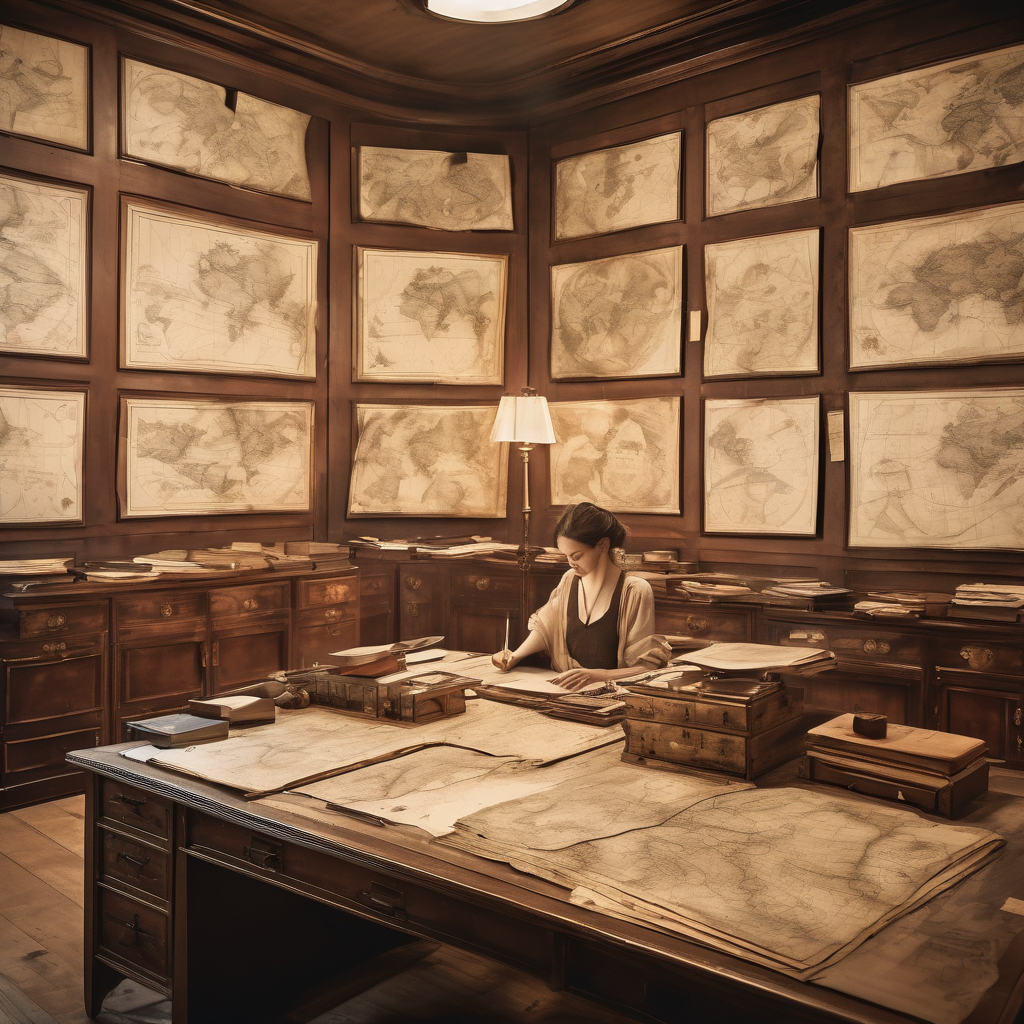Marina inherited three things from her father: a compass that pointed to lost things, a tendency to see maps in everything, and the coordinates to a place that didn’t exist. The morning after his funeral, she found them inked on the back of his death certificate in his meticulous handwriting—numbers that corresponded to nothing but empty ocean.
She worked at the municipal library, where she’d built a reputation for finding books that weren’t supposed to be there. Not misplaced books, but volumes that appeared between sunset and dawn, their pages smelling of salt and bergamot, filled with languages nobody recognized. The head librarian pretended not to notice when Marina catalogued them in a special section behind the genealogy records.
The compass had begun spinning wildly since her father died, its needle describing frantic circles as if searching for something just out of reach. Marina kept it in her pocket where it hummed against her hip like a trapped bee.
On the fortnight anniversary of the funeral, she met the astronomer.
He appeared in the library’s map room wearing a coat made entirely of star charts, the constellations shifting across the fabric as he moved. “You’re the cartographer’s daughter,” he said, not a question but a recognition.
“My father drew maps of places that don’t exist,” Marina replied, running her fingers along the spines of atlases that whispered coordinates in her dreams.
“All places exist somewhere,” the astronomer said. He pulled out a leather journal, its pages edged in gold that caught the afternoon light. “Your father and I were part of a society. We collected evidence of the world’s hidden geography—the places that only appear during certain emotional weather, the cities that exist in the spaces between heartbeats.”
Marina’s compass stopped spinning.
“There’s been a surge in disappearances,” he continued. “Not people, but locations. Entire neighborhoods folding into themselves, landmarks becoming uncertain. The invisible infrastructure is failing.”
She thought of her father’s final map, discovered in his study: a detailed drawing of their town, but with extra streets that branched like veins into impossible directions. She’d tried walking them once and found herself in her childhood bedroom, though their house had been demolished years ago.
“The coordinates,” Marina said. “He left me coordinates.”
The astronomer smiled sadly. “The Archive. Your father was its keeper, and now the responsibility passes to you. It’s where we store the maps of everything that’s been lost—every demolished building, every drained lake, every path through the woods that’s been forgotten. Without a keeper, they begin to leak back into reality.”
That night, Marina stood at the edge of the harbor with her father’s compass and the astronomer’s journal. The coordinates led into the water, but she understood now that geography was more flexible than most people believed. She thought of her father’s lessons: how he’d taught her to see the city’s true shape in the negative spaces between buildings, how rain puddles were windows if you approached them correctly.
She walked into the ocean. The water parted like a curtain.
The Archive existed in a perpetual golden hour, its halls lined with countless map cases that stretched beyond sight. Each drawer she opened revealed impossible cartographies: the migration routes of extinct butterflies that still cast shadows, the floor plans of buildings that existed only in novels, the territorial boundaries of childhood imaginary kingdoms.
In the center stood a desk with a single unfinished map—her father’s work. It showed their world, but also its overlapping possibilities, the places that existed in parallel, separated by the thinnest margins of belief.
Marina picked up his pen. The compass, finally still, pointed true north.
She began to draw, adding the coffee shop that had closed last week (but where the elderly still gathered every Tuesday in a dimension slightly to the left), the playground that had been paved over (but where children’s laughter still echoed in frequencies only dogs could hear), the old woman’s garden that developers had bought (but which bloomed eternal in the space between sunset and darkness).
Each mark she made stabilized something essential, kept the world from collapsing into a single, impoverished reality. She was not just the cartographer’s daughter anymore—she was the keeper of everything that mattered enough to someone, somewhere, to never truly disappear.
Outside the Archive, the astronomer waited with others who knew the secret: that the world was larger than its visible boundaries, that loss was just another form of geography, and that someone had to keep track of all the places where the heart could still travel, even when the feet could not follow.
Marina drew through the night, adding streets that existed only in memory, shores that touched impossible seas, and roads that led home by ways that maps had forgotten to forget.

Leave a Reply